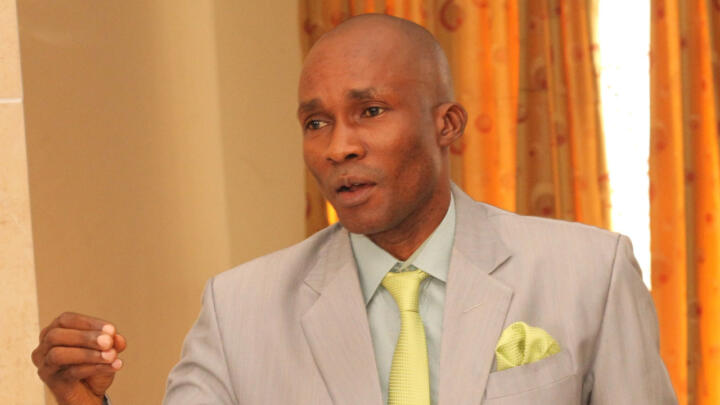A coalition of organizations dedicated to promoting gender equality has called for greater inclusion of women in Nigeria’s extractive sector. This initiative aims to address the significant gender disparities that persist within the industry, which encompasses oil, gas, mining, and other natural resources. The group believes that enhancing women’s participation can lead to more sustainable practices, economic growth, and social equity.
Understanding the Current Landscape
The extractive sector is a vital component of Nigeria’s economy, contributing significantly to the country’s revenue and employment. However, it remains largely male-dominated, with women often underrepresented in decision-making roles and frontline operations. This disparity not only hampers women’s economic empowerment but also limits the sector’s overall potential for development.
According to industry reports, women make up a small fraction of the workforce in the extractive industries, particularly in technical and managerial positions. This lack of representation can be attributed to various factors, including cultural norms, limited access to education and training, and systemic barriers within the industry. The coalition argues that increasing women’s participation is essential for fostering a more inclusive and equitable sector.

The Case for Women’s Inclusion
Research has shown that gender-diverse teams are more innovative, effective, and better at problem-solving. By including women in the extractive sector, companies can benefit from diverse perspectives that contribute to improved decision-making and performance. Moreover, women’s inclusion can lead to enhanced corporate social responsibility and more sustainable practices.
Women often play crucial roles in community development and environmental stewardship, which are critical aspects of the extractive industry. By incorporating women’s voices and experiences, companies can ensure that their operations consider the social and environmental impacts on local communities. This can lead to more responsible resource management and contribute to the long-term sustainability of the industry.
### Proposed Initiatives to Foster Inclusion
The coalition has put forward several recommendations to enhance women’s inclusion in the extractive sector:
1. **Capacity Building and Training**: Organizations should invest in capacity-building programs that equip women with the necessary skills and knowledge to excel in the extractive industry. This includes offering scholarships, mentorship opportunities, and vocational training tailored to the needs of women in the sector.
2. **Promoting Gender-Responsive Policies**: Advocacy for gender-responsive policies within the industry is crucial. This includes encouraging companies to adopt gender equality policies, ensuring that recruitment and promotion processes are fair and inclusive, and establishing family-friendly workplace practices.
3. **Creating Networking Opportunities**: Building networks and support systems for women in the extractive sector can provide valuable resources, mentorship, and collaboration opportunities. The coalition encourages the establishment of platforms where women can share experiences, challenges, and successes, fostering a sense of community and empowerment.
4. **Engaging Men as Allies**: Promoting gender equality in the extractive sector requires the involvement of men as allies. The coalition emphasizes the importance of engaging male leaders and employees in discussions about gender inclusivity, encouraging them to advocate for women’s rights and support initiatives that promote gender equality.
5. **Monitoring and Reporting**: Establishing mechanisms for monitoring and reporting on women’s participation in the extractive sector can help track progress and hold companies accountable. The coalition advocates for transparency in reporting gender diversity metrics, which can drive change and encourage companies to prioritize gender equality.
Challenges to Overcome
While the push for women’s inclusion in the extractive sector is gaining momentum, several challenges remain. Cultural attitudes and societal norms often perpetuate gender stereotypes, making it difficult for women to break into traditionally male-dominated fields. Additionally, systemic barriers, such as limited access to finance and resources, continue to hinder women’s advancement in the industry.
The coalition acknowledges these challenges and emphasizes the need for concerted efforts from all stakeholders, including government agencies, industry leaders, and civil society organizations. By working together, they can create an environment that fosters gender equality and empowers women to thrive in the extractive sector.
Conclusion
The call for increased women’s inclusion in Nigeria’s extractive sector is a crucial step toward achieving gender equality and sustainable development. By recognizing the valuable contributions that women can make, the industry can harness their potential to drive innovation, improve performance, and foster responsible resource management.
As the coalition advocates for change, it highlights the importance of collaboration, capacity building, and the implementation of gender-responsive policies. The time is ripe for Nigeria’s extractive sector to embrace inclusivity, ensuring that women are not only represented but also empowered to lead and contribute to the industry’s growth. By investing in women’s participation, Nigeria can pave the way for a more equitable and prosperous future for all its citizens.
Support InfoStride News' Credible Journalism: Only credible journalism can guarantee a fair, accountable and transparent society, including democracy and government. It involves a lot of efforts and money. We need your support. Click here to Donate
